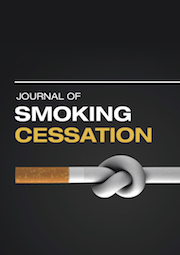Article contents
Evaluation of Face-to-Face Courses in Behavioural Support for Stop Smoking Practitioners
Published online by Cambridge University Press: 13 July 2012
Abstract
Introduction: In English National Health Service (NHS) Stop Smoking Services, stop smoking practitioners provide behavioural support and medication to support smokers wanting to quit. There is a need to develop an evidence base for the training of such practitioners. This study evaluated a national face-to-face skills training course in behavioural support for practitioners. Methods: Data were gathered from 169 trainees attending the NHS Centre for Smoking Cessation and Training (NCSCT) courses between October 2010 and August 2011. They provided confidence in competence ratings for 16 core competences before, immediately following and 3 months after training. At 3-month follow-up, they also described what they believed were the most important learning outcomes. Trainees also provided course evaluations in the form of ratings (n = 386, courses not yet followed up included). Results: Confidence ratings increased overall by 40% immediately after the course and the higher level of confidence was maintained at 3-month follow-up; 92% agreed or strongly agreed that the course was very useful and very interesting; 90% that it was very enjoyable; 88% that it improved their skills and 87% that they would recommend it. The learning outcomes rated as most important reflected the relevant behaviour change techniques. Conclusion: The NCSCT skills training course appears to result in a substantial improvement in confidence in ability to deliver smoking cessation support and trainees evaluate it highly. The next step is to assess improvements in observed practice and success rates.
Keywords
- Type
- Articles
- Information
- Copyright
- Copyright © The Authors 2012
References
- 10
- Cited by


